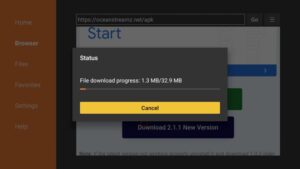Is y2mate Legit

In the era of digital evolution, where entertainment and information are just a click away, online platforms have burgeoned, offering a plethora of services catering to diverse needs. Among these, Y2Mate stands out as a popular tool for downloading online videos and converting them into various formats. Yet, its legitimacy has been a subject of debate, raising questions about its reliability, legality, and ethical implications. In this article, we delve into the depths of Y2Mate to discern whether it stands on the right side of the digital divide.
Understanding Y2Mate:
Y2Mate is a web-based platform that allows users to download videos from several online streaming platforms like YouTube, Facebook, Dailymotion, Vimeo, and others. Additionally, it offers the functionality to convert these videos into different formats such as MP4, MP3, WEBM, and more. With a user-friendly interface and swift conversion speeds, it has garnered a significant user base seeking to save videos for offline viewing or other purposes.
The Legitimacy Conundrum:
The legality of Y2Mate hinges on the contentious issue of copyright infringement. While users often employ Y2Mate for personal use, such as downloading videos for offline viewing, it’s also utilized for downloading copyrighted content without proper authorization. This raises red flags regarding its legality, as it potentially violates copyright laws and terms of service of various platforms.
Legal Perspectives:
From a legal standpoint, the use of Y2Mate to download copyrighted content without permission breaches intellectual property rights. Content creators invest time, effort, and resources into producing videos, and downloading them without proper authorization deprives them of rightful compensation and undermines their creative endeavors. Consequently, this practice infringes copyright laws in many jurisdictions, potentially subjecting users to legal repercussions.
Ethical Considerations:
Beyond legalities, ethical concerns emerge regarding the impact of using Y2Mate on content creators and the digital ecosystem. Content creators rely on views, likes, and subscriptions to sustain their channels and livelihoods. By bypassing platforms’ monetization mechanisms through downloads, users inadvertently diminish creators’ ability to earn income, thus undermining the economic viability of online content creation.
Alternatives and Mitigation:
Recognizing the ethical and legal dilemmas associated with Y2Mate, users may explore alternative avenues for accessing online content. Platforms like YouTube offer offline viewing options through their app, allowing users to save videos legally within the platform’s framework. Additionally, subscribing to premium services on streaming platforms provides ad-free and offline viewing capabilities, supporting content creators through legitimate means.
Conclusion:
While Y2Mate offers convenience and flexibility in accessing online content, its legitimacy remains dubious due to copyright concerns and ethical implications. Engaging in unauthorized downloading of copyrighted material not only violates legal statutes but also undermines the creative ecosystem by depriving content creators of rightful compensation. As conscientious digital citizens, it’s imperative to prioritize ethical and legal considerations while navigating the vast expanse of the digital landscape, opting for legitimate means of accessing and enjoying online content.
In essence, the allure of convenience should never overshadow the principles of legality and ethics that underpin our digital interactions. While Y2Mate may offer a shortcut to accessing online content, the price of compromising these principles is too high to pay. Let us tread the digital realm with mindfulness, respecting the rights and efforts of content creators while embracing legitimate avenues for content consumption.








